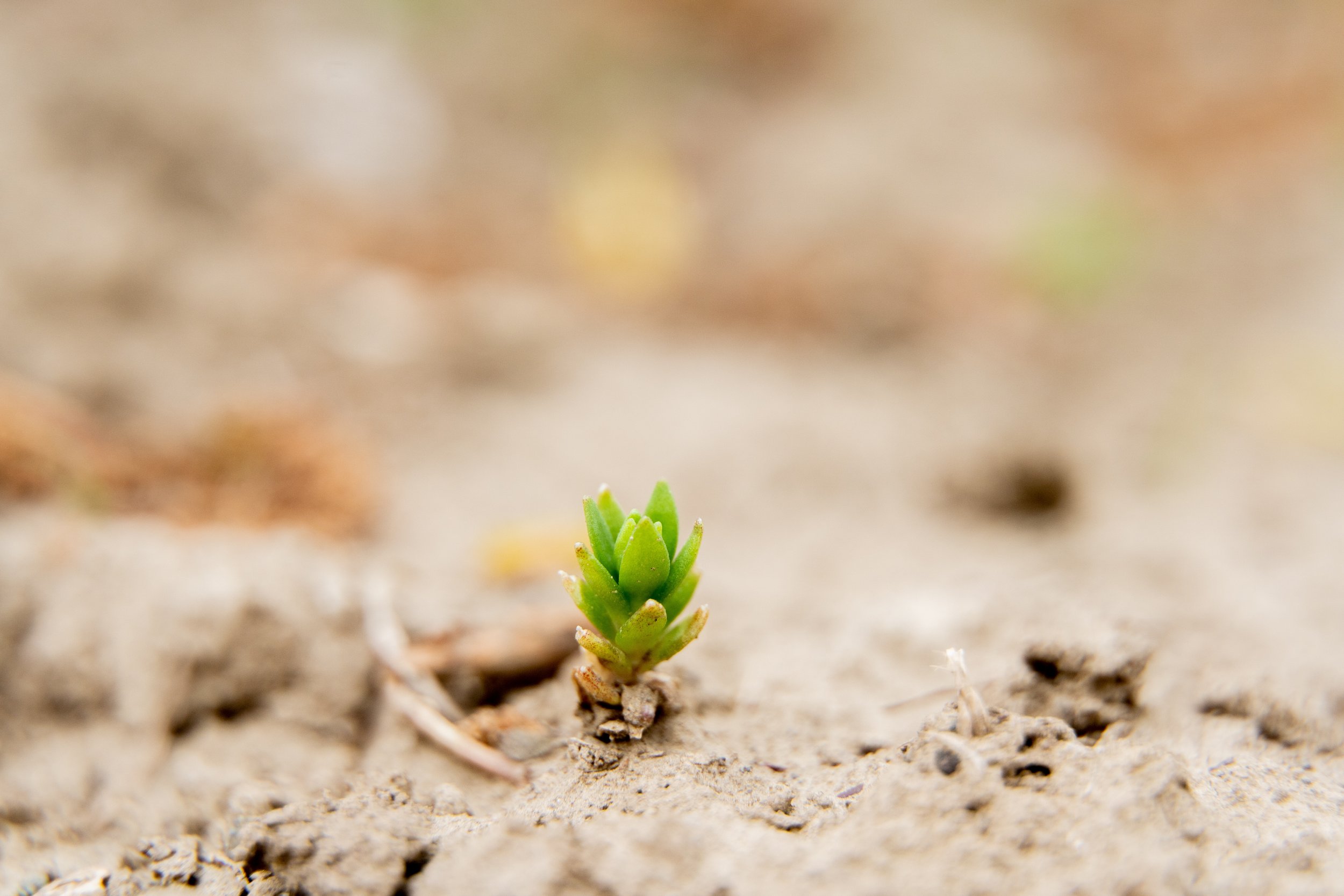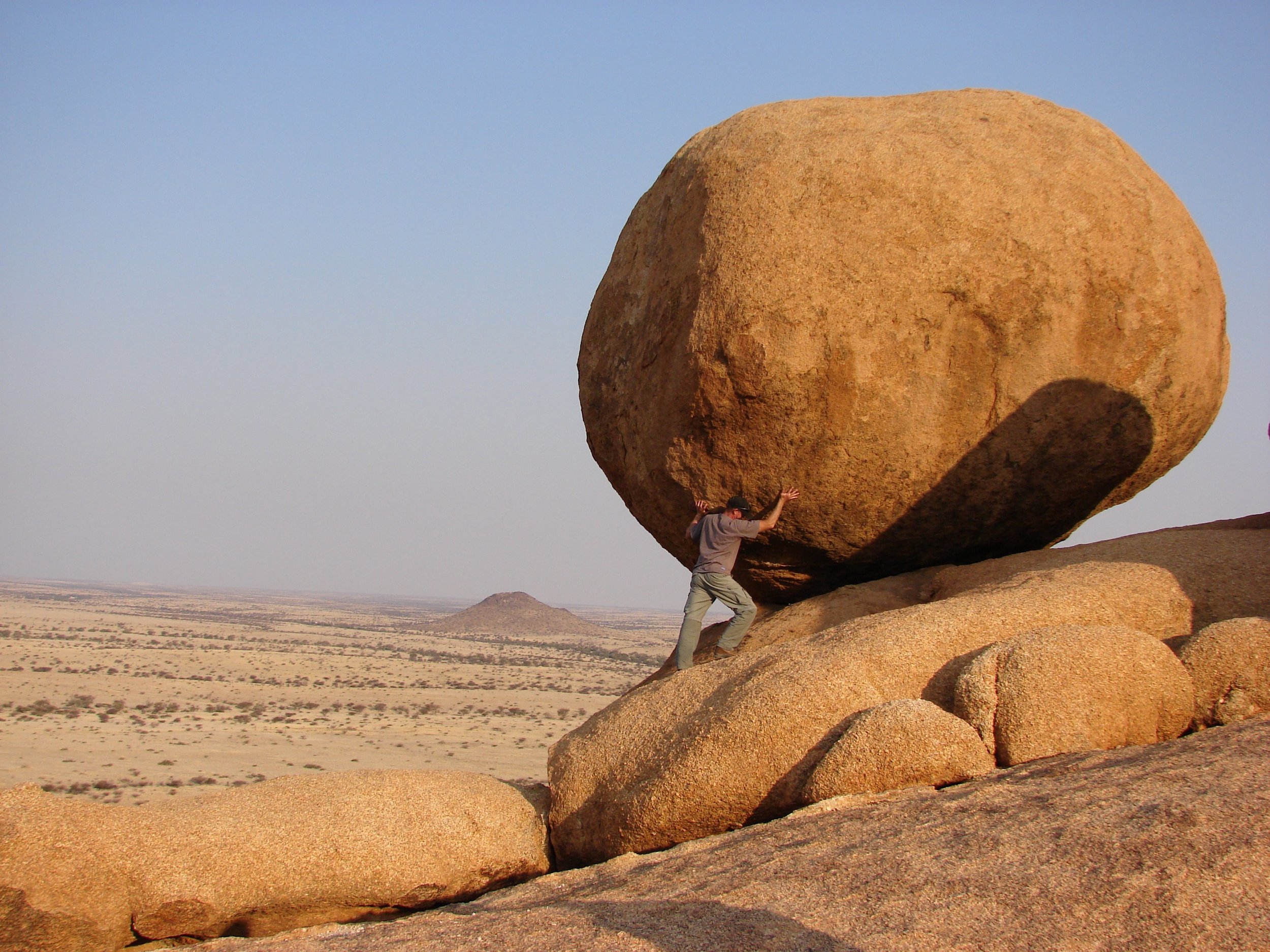Beyond Our Potential ~ Thriving in Adversity
A very close family member was recently diagnosed with pancreatic cancer. As I witnessed her patience and courage through the process, I was astounded by how gracefully she navigated the pain, the setbacks, and the frightening reality of her condition.
After months of chemotherapy and major surgery, she has made an amazing recovery.
I asked her what she attributed to her strength and resilience. She genuinely had no idea. She said she just did what she had to do to get through it.
Oftentimes, we don't understand where our strength, determination and endurance come from when we are faced with some of life’s greatest challenges. We may be unaware of the remarkable ways in which we adjust and compensate in adverse circumstances.
We are adaptive beings.
In a challenging environment, nature helps us to automatically redistribute our resources.
Lessons from Plants
High in the Andes Mountains, where extreme elevation and low oxygen levels make many life forms unsustainable, the maca plant thrives.
On the other side of the world, in the parched, desert landscapes of places like Nepal, Yemen, and Southwest India, the ashwagandha plant emerges from dry, rocky soil.
It’s hard to imagine anything surviving in such harsh environments.
Yet, the adverse climate conditions actually cultivate and sustain these robust and determined plants.
Known as adaptogens, these herbs have been used for their medicinal properties in places like India and China for centuries. Modern scientists have only taken an interest since the mid-1900s, but studies reveal the nourishing and healing properties of these plants come from their capacity to adapt to the adverse climates in which they grow. Thus, the name— adaptogens.
Like the hardy plants sprouting from an unsuspecting terrain, we too may endure challenges of living in strained environments and stressful conditions.
Similar to adaptogens, we are designed to extract information from our surroundings so that we might adjust, adapt and advance.
Have you, like the ashwagandha plant, been raised in an environment with limited nourishment?
Have you experienced physical, financial, or emotional drought?
Have you been hit by an unexpected storm (eg. medical diagnosis, marital separation, death of a loved one, etc)?
Think about a life challenge, obstacle, or hurdle you have experienced or are currently facing.
Let go of the idea that there is a hierarchy of adversity.
Stop judging your (and others’) struggles as being easier or harder, bigger or smaller, better or worse. We are each impacted by the hardships we encounter to varying degrees.
Like plants, people respond uniquely to different types of stress. Some of us have the capacity to tolerate severe storms and thrive in wet, cloudy weather. Some of us can sustain through extended droughts and grow vibrant beneath the relentless sunshine.
If we constantly compare ourselves or our situations to others, we risk falling into the traps of superiority or inadequacy. (“How can I complain when people are really suffering in this world?” or “No one understands how hard it is to get up in the morning after what I’ve been through.”) Both attitudes stem from self-defeating judgment and criticism, and we miss an opportunity to better understand ourselves and grow from where we are.
When we acknowledge our respective challenges and bring genuine inquiry to how our experiences have impacted and continue to influence us, we gain valuable insight as we move through life.
While optimum “weather”—an easy work schedule, a lazy afternoon floating in the pool, a perpetually blissful relationship—might seem ideal, rarely do we grow stronger, smarter, or more skilled in such conditions.
Biology of Resilience
Just as adaptogenic plants grow stronger and more robust in stressful environments, we too not only adapt, but become physically and psychologically more resilient when we experience adversity or intentionally challenge ourselves in meaningful ways.
Our muscles need tension to grow. Our heart needs a certain amount of pressure to improve its endurance. We fortify our body by lifting weights, creating resistance, applying impact, or sustaining a stretch.
Without this kind of stress, we atrophy.
Recent research indicates that by deliberately applying (hormetic) stress through intermittent bursts of activity (eg. extreme temperature exposure, high-intensity workouts, etc), we can enhance our tolerance and increase our psychological and physiological resilience to promote healthier aging.
Stress has the potential to fortify our bodies both inside and out. Behind the scenes, our immune system is bolstered through mild to moderate exposure to threat (eg. bacteria, exercise, etc). White blood cells rush to the sight of infection or inflammation, microglia sweep in to protect our brain function, and hormones work relentlessly to maintain homeostasis without our conscious efforts.
In overcoming pancreatic cancer, my mom was unaware of what biological processes were at work in responding to chemo, rebuilding healthy cells, and adapting to necessary functions once some of her organs were removed. Her physical immune system was effectively doing its thing without her knowledge.
Similar to our physiological immune system, we also possess a psychological immunity (eg. determination, perseverance, hope, courage, etc) which can serve us unnoticed.
We may not realize we have been in a threatening situation, or the consequences of it, until much later.
Our brains are wired to instinctively survive regardless of the threat. Complex (C)PTSD comes from long-term, chronic trauma like child abuse, emotional/physical abandonment, or experiencing/witnessing domestic or community violence. People who have experienced chronic trauma may not understand the psychological ramifications until after they have escaped the threat. The priority is to adjust, adapt, and develop the necessary resources to ensure survival.
However, whether it’s cancer or C-PTSD, threatening experiences and adverse situations take a toll on our body’s physical and psychological systems. It’s important to acknowledge the impact of what we’ve been through if we want to be able to heal and grow from it.
Both physical and psychological stress, tension, and pressure can lead to strength, stamina, and flexibility. Any muscle we utilize consistently will develop over time, but if we engage our muscles with intention, we can get more targeted results. Likewise, when we take the time to recognize our responses to psychological stresses, we have the opportunity to hone more specific benefits (eg. creativity, humor, grit, etc).
Trauma is outrageously prevalent. Challenges, disappointments, and fears are an inevitable part of life. Regardless of the adversity we face, we are capable of adapting and harnessing negative experiences in ways that ultimately support and sustain us.
Take a moment to reflect on the challenges you’ve faced and the opportunities they offer to learn about yourself.
What adaptogenic plant (or aspect of nature) do you identify with most? Why?
How have you adjusted, adapted and advanced through an adverse life experience?
What “muscles” do you exercise in times of threat, trauma or significant difficulty?
What “muscles” would you like to further develop, stretch, or refine in the future?
What resources or “immunity” have you accessed in moments of difficulty without realizing? What untapped strengths or resilience have you discovered?
How have challenging life experiences hurt, compromised, or impacted you?
In what ways might you be more informed about your vulnerabilities?
How have your values or perspectives been shaped by challenging life experiences?
“Adversity introduces a (wo)man to (her)himself.”
~Albert Einstein






